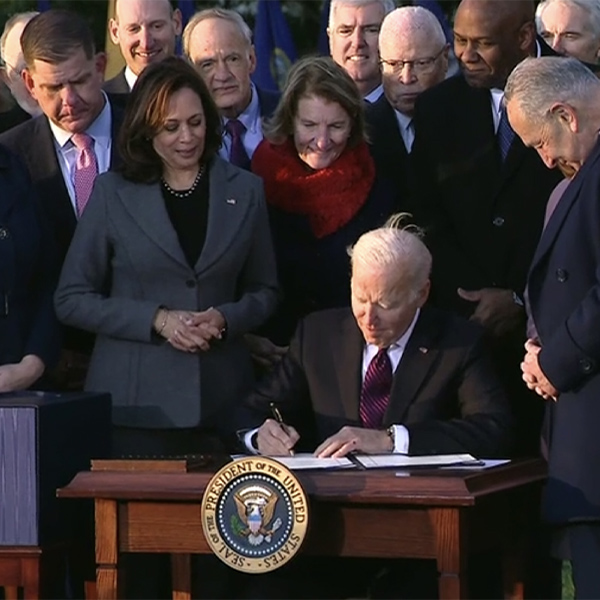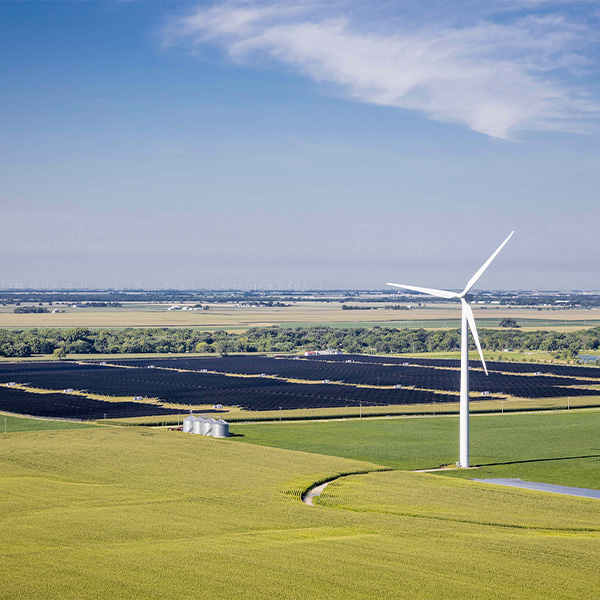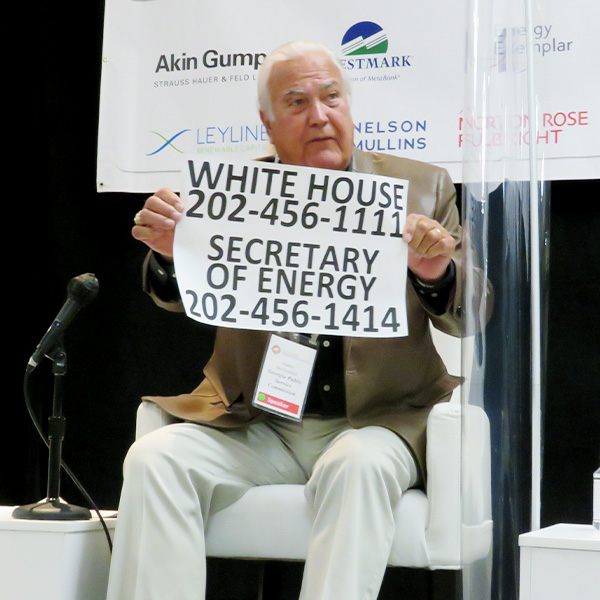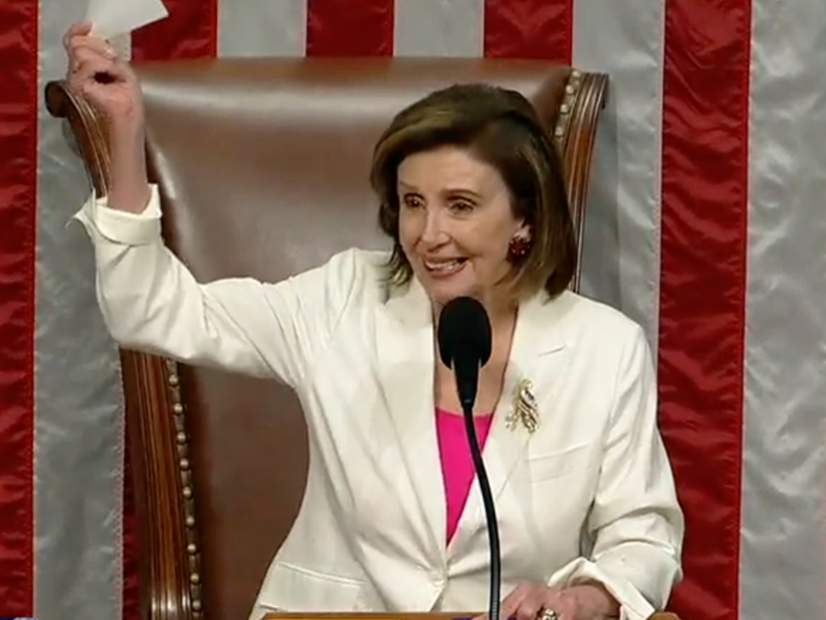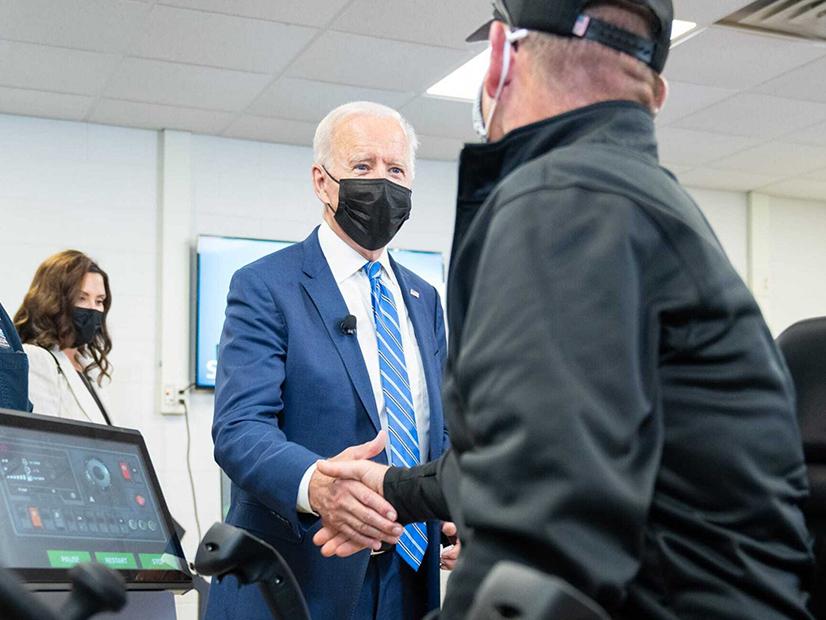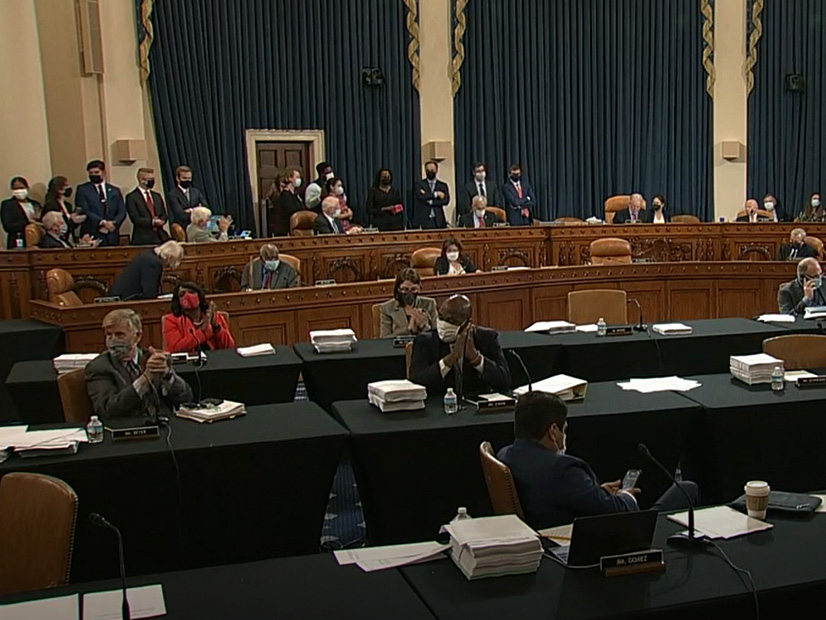Build Back Better Act
Washington Gov. Jay Inslee unveiled a $626 million climate change policy wish list for state lawmakers to tackle in the 2022 session.
President Biden ordered the federal government to use carbon-free electricity for its 300,000 buildings by 2030 and to decarbonize its 600,000 vehicle fleet.
U.S. renewable energy deployment is dependent on an import-heavy supply chain, and the outlook for a domestic supply of components isn’t getting better.
Speakers and attendees of SEIA's 30x30 Policy Forum were optimistic that the Senate would pass the Build Back Better Act.
About 300 regulators and industry representatives met at the Southeast Renewable Energy conference to discuss the region’s efforts to attract solar power.
The U.S. House passed the Build Back Better bill, the $1.75-trillion budget reconciliation package that is key to advancing President Biden’s climate agenda.
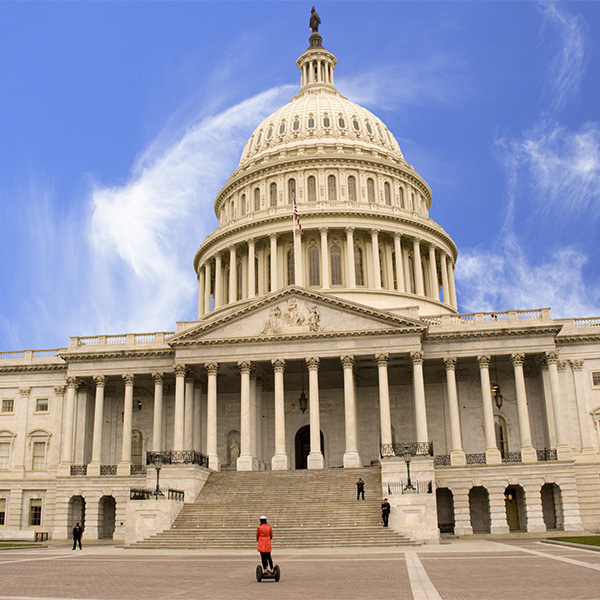
David Maiolo, CC BY-SA-3.0, via Wikimedia
The House of Representatives’ passage of the bipartisan Infrastructure Investment and Jobs Act quickly set off a chorus of praise from clean energy groups.
President Biden rolled out a new framework for a whittled-down budget reconciliation package that includes $555 billion in clean energy funding.
A big factor at COP26 will be the extent to which countries are willing to make further commitments toward achieving net-zero emissions this century.
The House Ways and Means Committee approved Democrats’ $3.5 trillion spending package, which includes billions for energy efficiency, renewables and EVs.
Want more? Advanced Search

